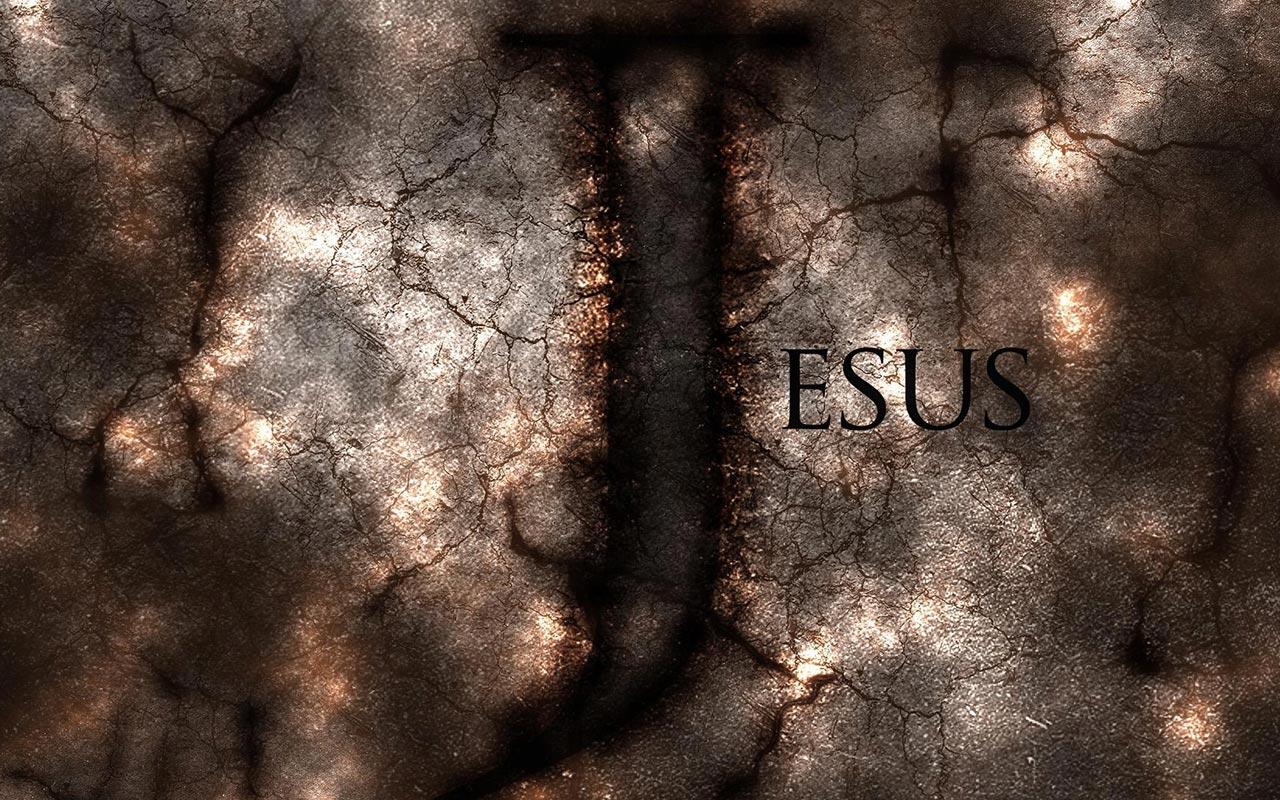STEEMCHURCH.... JESUS MUST HAVE SINNED
According to conflicting absolutism, sin is is unavailable in real moral conflicts. However, according to the Bible, Jesus was "tempted I'm every way, just as we are yet without sin" (Heb, 4:5). So if there are real moral delimmas, then either Jesus faced them or else he did not. If he did face them acording to the lesser-evil view, which states that evil is indeed unavoidable, Jesus must have sinned. But the Bible says that Jesus did not sin (2Cor 5:21,Heb 4:15). Hence, the only alternative Hera is that Jesus never faced real moral conflicts. If we assume that there are real moral conflicts, several explanations for the dilemma can be offered. First perhaps the lesser-evil view is incorrect, and Jesus never sinned when he faced real moral conflict. Perhaps "stealing" bread from the temple ( taking it without permission from the proper authority) is not morally wrong when starvation of God's servant is the other alternative is not what Jesus implied in Matthew 12:3-8


But let us not so readily assume that conflicting absolutism is defenseless in the face of this charge. Perhaps Jesus never sinned in the area of moral conflicts simply because he never faced any moral conflicts. There are two explanations for this position. First, it may be that God providentially spared Jesus from facing moral conflicts in order to preserve his sinlessness. But if this the case, then christians may ask why they too are not spared from moral conflicts if they are faithful to God. In fact, this is precisely what many nonconflicting absolutists hold: there is always a third alternative for the faithful. Daniel did not have to either eat the pagan meat and drink, the pagan wine or suffer the consequence of his disobedience (Dan. 1). There was a prayerful third way out. Is this not what 1 Corinthians 10:13 seems to imply that there is always a "way of escape" (RSV)? If the conflicting absolutists wish to take this alternative of arguing that God will provide a way out for those who are faithful to God's will, as Jesus was, then their view really collapses into nonconflicting absolutism. For in the final analysis, the lesser-evil view is saying that there never is an unavoidable moral conflict for those who do God's will. It would be special pleading to declare that the providential way out applies only to Christ but not to other servants of God who are faithful to his will.
Another suggestion is that Jesus never faced any moral dilemmas simply because He never committed any antecedent sin to get Himself into these tight spots. Only those who make their moral beds have to lie in them Jesus never sinned. And hence He never Himself in unavoidable moral conflicts. On the face of it, this view has merit. Often our previous sin's seem to get us into a moral pickle. We do reap what we sow. However, in order for this obvious truth to rescue the lesser-evil position from collapse, it must be universally true: it must always be true that moral dilemmas we face are created by our own antecedent sins. This seems patently false by counterexample sometimes even the innocent are faced with moral difficulties. What sin did innocent German Christian families commit that placed them in the dilemma of either lying or watching Jews go to the gas chamber? Were these believer more sinful than other in the world? One is reminded here of Jesus's statement about those on whom the tower fell, "Do you think that they were worse offenders than all the others who dwelt in Jerusalem?" (Luke 13:4 RSV).

[All images from #google.com]
Indeed, not only is it not true that moral dilemmas are always brough about by antecedent sin:sometimes it also antecedent righteousness that precipitates the dilemma. Daniel and the three Hebrew youths were confronted with their dilemma because they were blackslidden (Dan 1,3,y). Nor were the apostles doing evil when religious authorities commanded them not to preach the gospel (Act 4). The same is true of Abraham's dilemma over whether to kill his son or to disobey God (Gen 22). Indeed, many times in life it is one's dedication to God that precipitates moral conflicts. It may be a person's righteousness, not antecedent sin that occasions the moral conflict. If this is the case, then the lesser-evil position has not redeemed itself against the criticisms. It has not explained away the christological dilemma. It had not shown that Jesus never faced moral delimmas simply because He never committed any previous sins.
Before the opponents of the lesser-evil view rejoice too quickly, there is another point to consider. Perhaps there is always antecedent sin in our case but never in Christ's case because we are fallen and He is not. Adam's sin is antecedent in the case of all humankind except Christ. Hence, because we are part of a fallen world, previous sin (that is, Adam's, Rom 5:12) is responsible for subsequent moral dilemmas that we will face but Christ did not.
There is a certain plausibility about this suggestion that cannot be denied. It seems to point to a clear difference in Christ case, as well as to recognize antecedent sin our case. There are however, at least two problems here.
First, moral conflicts due to antecedent sin of Adam are not unique to fallen humanity Christ also lived in the fallen world. And even though He never personally sinned, Christ was nevertheless immersed in a world of moral conflicts due to Adam's and other sins. Anyhow, not all moral conflicts are due to one's own antecedent sin. The sins of others can force a dilemma on those who did not personally created the tragic situation. Thus a key question appears: why did Christ not face any moral conflicts on Him by the sins of others.
Second,the attempt to explain why Christ did not face moral conflicts by way of Adam's fall confuses collective and personal guilt. There is corporate sense in which everything done by fallen humanity is sinful. In this sense, sin is inevitable for all fallen people. This however, is quite different from saying that a person is personally guilty for creating the situation or that any particular sin is unavoidable. The immediate moral choice may not induce guilt because it is unavoidable. However, if it were not for Adam's fall, that kind of situation would never have occurred. For example, one would never have kill in self-defense if it were not for Adam's fall. In a paradise, presumably there would be no need to kill for any reason. Nevertheless killing in self-defense is not a personally culpable act according to the law of God (Exodus. 22:2)
We may still ask: did Jesus really face moral dilemmas in which two or more commands of God came into unavoidable conflict ? An examination of the gospel yields several illustrations. At age twelve Jesus faced a conflict between his earthly parents and his Heavenly Father. Although He later submitted to His earthly parents, initially He left them in order to fulfill God's will (luke2). Also, Jesus justified his disciples action of taking grain by approving David's "stealing" of the consecrated bread in the tabernacle (Matt. 12:3-4. In this regard Jesus said to others, "[Whoever]loves father or mother more than me is not worthy of me" (Matt 10:37). On many occasions, Jesus faced conflict between obeying religious authorities, which He taught His disciples and others to do (Matt. 23:3), and following the law of mercy by helping those in need (Luke 14:1-6). The greatest moral conflict that Jesus faced, however was His trial and cross, where mercy and justice came into direct and unavoidable conflict.
Should He speak in defense of the innocent (Himself) , as the law demands (Lev. 5:1), or should He show mercy to the many (John 10:10)

Or should He refuse to die innocently for others? In both case, Jesus chose mercy over justice. But did He sinned in doing? God forbid!
If it is sin to do the greatest good in morally conflicting situation, then Jesus would have been perhaps the greatest sinner who ever lived. Perish the thought! Indeed, God Himself faced moral conflict in the cross: should He sacrifice His son or should He allow the world to perish?. Thank God, mercy triumphed over justice. Surely the sacrifice of Christ was not a lesser-evil : it was indeed the greatest good that God could do.

Keep sharing the word of God @bigssam
The word of God is a spiritual food to all souls. Thanks for this important piece. @bigssam.
This is a message which nourishes the soul. Thanks for sharing it with us.
Your Post Has Been Featured on @Resteemable!
Feature any Steemit post using resteemit.com!
How It Works:
1. Take Any Steemit URL
2. Erase
https://3. Type
reGet Featured Instantly � Featured Posts are voted every 2.4hrs
Join the Curation Team Here | Vote Resteemable for Witness
Jesus was able to stand....because He knew the scriptures..as de devil quote to him He said it is written.beloved if our reasons for rejecting the devil is not from the bible....we ll give up on the [email protected] a goodwork done...God bless you more spreading the gospel.
Thanks for blessing us with word of God every morning @bigsam
Hebrews 4;12
He took our sinful flesh yet He was sinless just for us to overcome sin through His blood. Try to overcome sin because Jesus through His death overcame it for our freedom from sin.. Hallelujah
You got a 0.95% upvote from @postpromoter courtesy of @bigssam!
Want to promote your posts too? Check out the Steem Bot Tracker website for more info. If you would like to support the development of @postpromoter and the bot tracker please vote for @yabapmatt for witness!